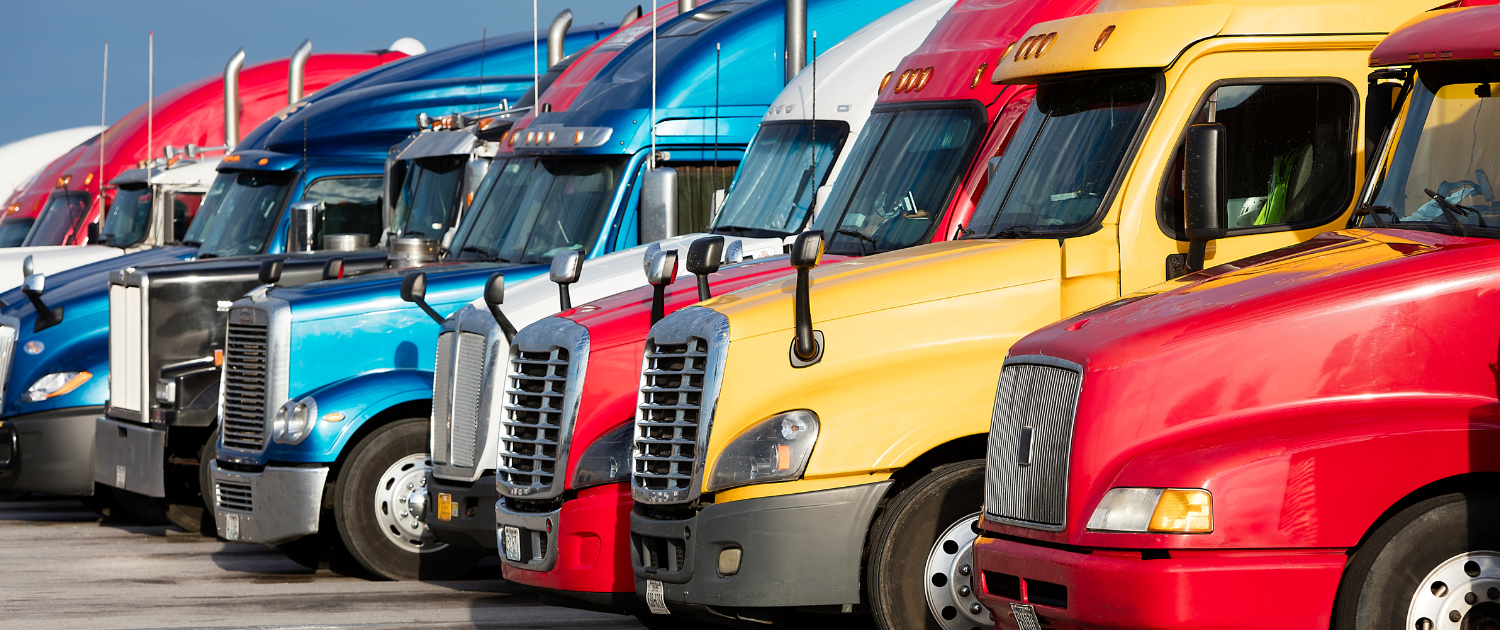
For truck drivers, the cab of a truck is more than just a workspace. It often doubles as a home on the road.
Spending long hours behind the wheel means your truck’s cleanliness and organization can significantly impact your comfort, productivity, and even safety. A clean, well-organized truck can improve mental clarity, reduce stress, and even help you operate more efficiently.
Keep reading to learn our 10 practical tips to keep your truck clean and organized this year.
Start With a Deep Clean
Before creating a system for organization, start with a deep clean. Empty the cab entirely, including the glove compartment, under-seat storage, and any sleeper berth areas. Wipe down all surfaces with disinfectant wipes or an appropriate cleaning solution. Use a vacuum cleaner with attachments to remove dirt, crumbs, and debris from hard-to-reach places, including seat cushions and floor mats.
Pay attention to:
- Dashboard: Dust and grime can accumulate quickly on the dashboard.
- Windows and mirrors: Use glass cleaner for streak-free visibility.
- Air vents: Use a small brush or compressed air to remove dust from vents.
- Floors: Consider using heavy-duty rubber mats that are easy to remove and clean.
Once your truck has been through a thorough deep clean, maintaining cleanliness will become more manageable.
Declutter Regularly
Clutter can quickly pile up, especially during long hauls. Try making it a habit to declutter your truck daily or at the end of each trip.
Remove trash, unused items, and anything that doesn’t belong in the cab. Consider keeping a small, portable trash can or bag in your truck to make cleanup easier. Having a designated place for trash will reduce the temptation to leave items lying around.
Invest in Storage Solutions
Storage solutions can make a significant difference in keeping your truck organized. These storage solutions can differ in size and purpose, depending on what needs to be sorted in your cab. Here are some suggestions for storage options:
- Seat organizers: These hang on the back of seats and provide compartments for storing small items like notepads, chargers, and snacks.
- Storage bins: Stackable or collapsible bins can be used for larger items like tools, extra clothes, or cleaning supplies.
- Drawer systems: If you have space in your sleeper cab, consider installing small drawer units to keep items like toiletries, socks, or paperwork organized.
- Velcro strips or adhesive hooks: These can hold lightweight items like keys or headphones.
Additionally, it can help to label storage bins or compartments to make it easy to find items when you need them.
Create Zone
Your truck can double as your office, home, and even kitchen. Dividing your truck into zones based on functionality can help you to better organize everything you do in your truck. These are some example zones you might divide your truck into:
- Driving Zone: Store items you need while driving, such as your logbook, phone mount, and sunglasses, within arm’s reach.
- Living Zone: Dedicate space in the sleeper cab for bedding, clothes, and toiletries.
- Work Zone: Use a designated area for tools, paperwork, and equipment.
- Food Zone: Store snacks, drinks, and meal-prep items in a compact cooler or mini-fridge.
Having clearly defined zones helps maintain order and prevents items from being misplaced.
Keep Cleaning Supplies Handy
A small stash of cleaning supplies can help you maintain a clean truck throughout your journey. Consider keeping:
- Disinfectant wipes
- Glass cleaner
- Paper towels
- A handheld vacuum
- Trash bags
- Air fresheners or odor eliminators
Store these items in a designated area so they’re always accessible. Quick touch-ups during downtime can prevent messes from becoming overwhelming.
Manage Food and Drinks
Eating and drinking in your truck is always going to be necessary at points, but it can lead to spills and crumbs. To avoid attracting pests or creating unpleasant odors, consider:
- Using spill-proof containers and travel mugs.
- Storing snacks in resealable bags or containers to keep them fresh and contained.
- Cleaning up spills immediately to prevent stains and smells.
- Emptying your cab trash can daily to avoid lingering food odors.
If you use a mini-fridge, be sure to clean it out weekly to avoid spoilage.
Maintain Your Bedding
If your truck has a sleeper cab, keeping the bedding clean is essential for both comfort and hygiene.
Wash your sheets, blankets, and pillowcases regularly. Consider using a mattress protector to keep your sleeping area fresh and free from allergens. Additionally, storing bedding in a compact bag when not in use can free up space and keep it clean.
Stay on Top of Paperwork
Truck drivers often deal with a lot of paperwork, from delivery receipts to inspection forms. Without a system, these documents can quickly become overwhelming. To stay organized:
- Use a file folder or accordion organizer to separate documents by category (e.g., receipts, logs, permits).
- Digitize important documents using a mobile scanning app.
- Keep a clipboard handy for forms you need to fill out frequently.
Personalize Your Space
While cleanliness and organization are crucial, adding personal and creative touches to your truck can make it feel more like home.
Small items like family photos, a favorite blanket, or a motivational quote can improve your mood and help you stay positive during long trips. Just be sure these items don’t add unnecessary clutter.
Develop a Cleaning Routine
Consistency is key when it comes to maintaining a clean and organized truck. Develop a routine that works for you. For example:
- Daily: Remove trash, wipe down surfaces, and organize items.
- Weekly: Vacuum, clean windows, and sanitize frequently touched areas.
- Monthly: Deep clean the cab, wash bedding, and check for maintenance issues.
By sticking to a routine, you’ll prevent messes from building up and make your truck a more pleasant place to work and live.
Looking for more information on potential jobs and new trends in the trucking industry? Be sure to check out more posts on our blog and follow us on social media!












